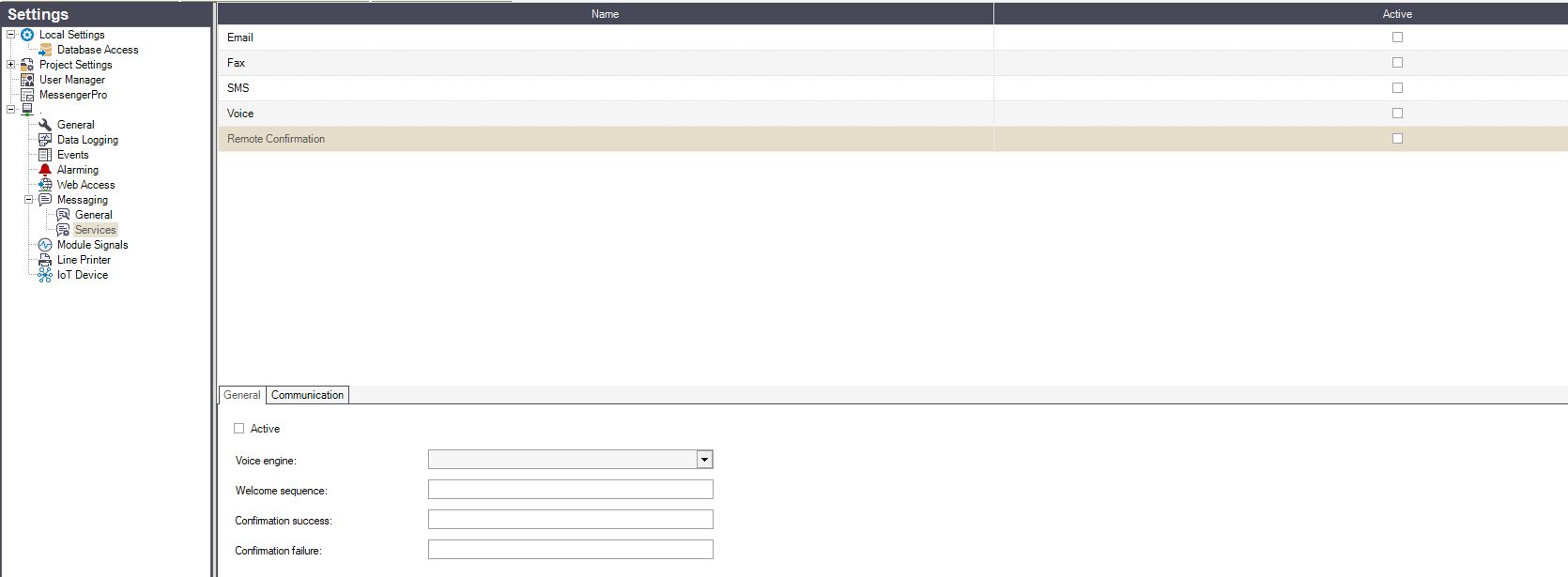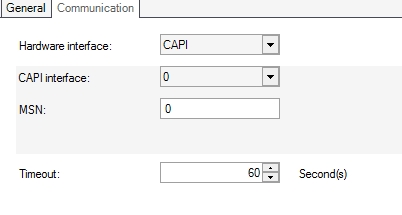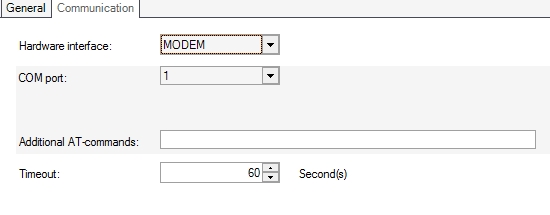Remote Confirmation Service Section
Interested in how to configure i4scada MessengerPro for voice confirmation messages for remote acknowledgments? Check out this article!
The Remote Confirmation Service section allows the user to configure the settings for voice confirmation messages for remote acknowledgments.

Remote Confirmation Service Section
The options listed in the Remote Confirmation Service section are split into two categories: General and Communication.
The settings will only be saved upon pressing the Save button.
General options
UI Option | Description |
|---|---|
Active | Toggles the Voice messaging service on or off. If disabled, the Voice service won't be available in Messenger or MessengerPro. |
Voice Engine | The voice engine used for speech output. By default, only Microsoft Anna for US English voice engine is available. If other Microsoft compatible voice engines are installed, they will be available here. |
Welcome sequence | The starting sequence of the voice confirmation message. |
Confirmation success | The voice message used for confirming a successful operation. |
Confirmation failure | The voice message used for confirming a failed operation. |
Communication options
The Communication options allows the user to choose and configure the settings for sending the confirmation voice message.
CAPI hardware interface settings

CAPI hardware interface settings
UI Option | Description |
|---|---|
Hardware interface | The hardware interface used for sending the alarm voice messages. Can be:
|
CAPI interface | The CAPI interface to be used, from 0 to 7. If you don't know which CAPI interface to select, please ask your hardware vendor/manufacturer. If you have only one ISDN card installed, try the CAPI interface 0. |
MSN | The internal connection number for using the MSN (Multiple Subscriber Numbering) service. When using the MSN service, several devices that have associated MSN numbers can be called on the same ISDN line. |
Timeout | The period of time to wait before redialling, when the receiver cannot be reached. |
Modem settings

Modem Settings
UI Option | Description |
|---|---|
COM port | The COM port used to access the modem. |
Additional AT-commands | If the modem requires additional AT (Hayes) initialization commands, they can be entered here. The AT commands will be sent to the modem before a connection is established. |
Timeout | The period of time to wait before redialling, when the receiver cannot be reached. |